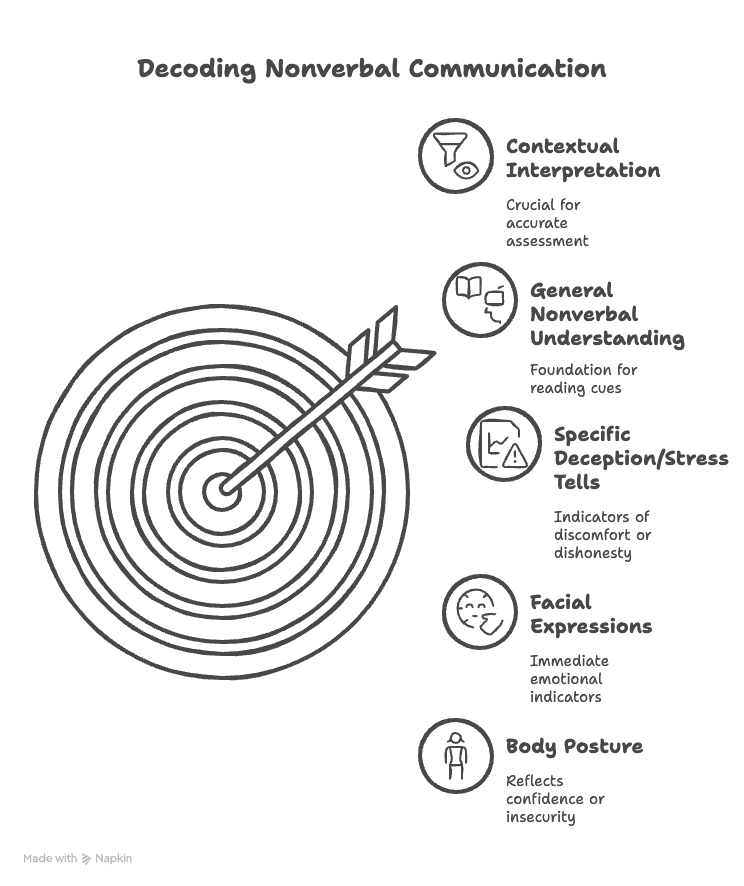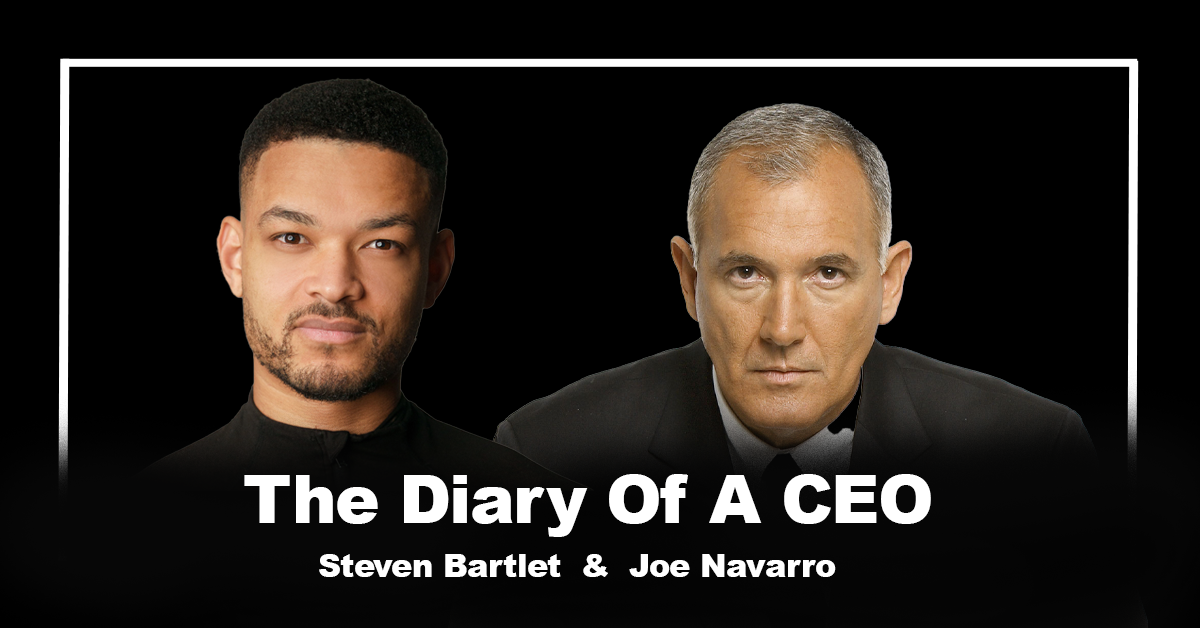Hey everyone,
This episode features former FBI agent Joe Navarro, a world-renowned expert in nonverbal communication, who spent 25 years decoding human behavior, catching spies, and mastering the art of negotiation. Drawing on his extensive FBI experience, Navarro breaks down the subtle, often unconscious, nonverbal cues that reveal hidden intentions, expose lies, convey power, and shape every human interaction.
Navarro shares insights into how the FBI trains agents to read body language, detect deception in seconds, and even project confidence. From micro-expressions formed in milliseconds to the significance of posture and gestures in high-stakes negotiations, he provides a masterclass in understanding the unspoken language that governs our lives. The conversation delves into practical techniques applicable to leadership, parenting, communication, and personal development.
Here are the detailed key insights and takeaways:
Decoding Nonverbal Communication & Deception:
- Primacy of Nonverbals: We are born reading nonverbals before language. Understanding comfort vs. discomfort is the foundation.
- Thin Slices & First Impressions: Research (Dr. Ambati) shows we make surprisingly accurate assessments of others in as little as 3 milliseconds, faster than a blink.
- Key Deception/Stress Tells:
- Lips: Tightening, pursing, or blood leaving the lips often signals disagreement, stress, or dislike.
- Glabella (Eyebrow Area): Furrowing indicates doubt, concern, or disagreement.
- Facial/Eye Touching: Often a pacifying behavior triggered by stress or discomfort (linked to cranial nerves).
- Neck Touching (Supernal Notch): A significant indicator of insecurity, threat, or weakness, stemming from primal protection instincts.
- Freezing/Covering Mouth: Evolutionary responses to hearing/seeing something shocking or threatening (predator avoidance).
- Finger/Thumb Spacing: Confident individuals tend to spread fingers wider; fear or insecurity leads to fingers coming together and thumbs tucking in.
- Context is Crucial: Body language must be interpreted within context and alongside other cues. It’s about approximations and patterns, not perfect mind-reading.

Negotiation, Influence & Power Dynamics:
- FBI Negotiation Tactics: Control the environment (seating height, who enters first, room setup), control time (slow down aggressive opponents, control breaks), and establish dominance subtly.
- Building Rapport & Synchrony: Mirroring (subtly) posture, gestures, and language builds connection and receptiveness. Tilting the head shows listening. Use “family” if they say “family,” not “wife and kids.”
- Psychological Comfort is Key: Aim to create psychological comfort for the other party, even in disagreement. Offering amenities (drinks), active listening, and allowing them to share their perspective are crucial. This is often more important than achieving “perfection” in terms.
- The Power of Still Face: Holding a neutral, unreactive “still face” (especially in meetings or virtual calls) is perceived negatively – as untrustworthy or threatening. Show engagement.
- Voice & Cadence: Confident communication involves a lower vocal tone, downward inflection (especially for “No”), and speaking in cadence (like Churchill, MLK) which allows processing and adds weight.
- Hand Gestures: Use open hand gestures (vertical full hand for pointing, not finger). Spreading fingers conveys confidence and care.

Catching Spies & Real-World Examples:
- Behavioral Analysis: Navarro was part of the FBI’s program analyzing behavior to catch spies and terrorists.
- Rodrik Ramsay Case: Caught via a subtle cigarette shake – an involuntary physiological response to hearing a trigger name, revealing hidden stress/guilt. Led to uncovering major espionage compromising nuclear codes.
- Flower Guy Case: Identified an “illegal” (foreign agent posing as American) by how he carried flowers (down, like Eastern Europeans, not up like Americans).
- Reality vs. Fiction: Espionage is rarely like James Bond; it often involves subtle observation, long-term infiltration (e.g., using students), and exploiting human behavior.

Confidence & Personal Development:
- Confidence Can Be Trained: It’s not just innate. The FBI actively teaches it.
- Build from Competence: Start by being confident in one specific thing you do well (even small tasks). This confidence can then permeate other areas.
- Know Your Subject: Deep knowledge of a topic is a major source of confidence in any interaction or meeting.
- Posture & Territory: Occupy space appropriately; avoid “shrinking” physically, as it signals low confidence.

Final Thought:
Joe Navarro provides a fascinating window into the world of nonverbal communication, honed through decades of high-stakes FBI work. His insights reveal that the unspoken signals we constantly send and receive are incredibly powerful, influencing trust, perception, and the outcome of our interactions. By learning to consciously observe and understand these cues in ourselves and others, we can navigate social and professional landscapes more effectively, build stronger connections, and gain a significant advantage in communication and negotiation. The episode is packed with actionable advice grounded in both science and real-world experience.
Find the Guest:
- Instagram: https://g2ul0.app.link/mEIBxWMqESb
- Twitter: https://g2ul0.app.link/2r4SCkOqESb
- Body Language Academy: https://g2ul0.app.link/xDCgWDRqESb
Until next time,
The Podcast Notes Team





